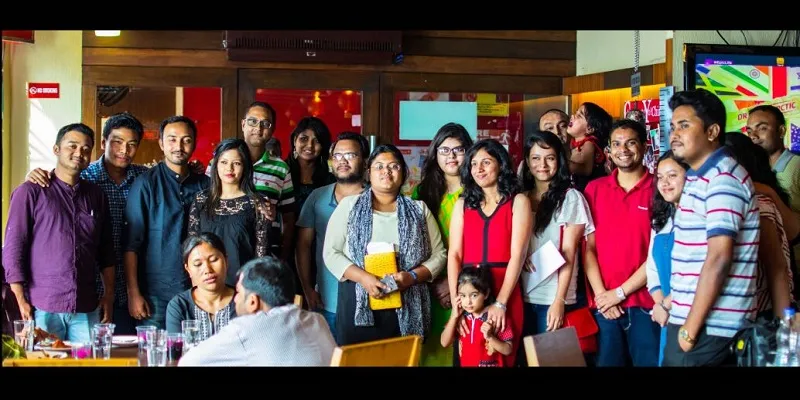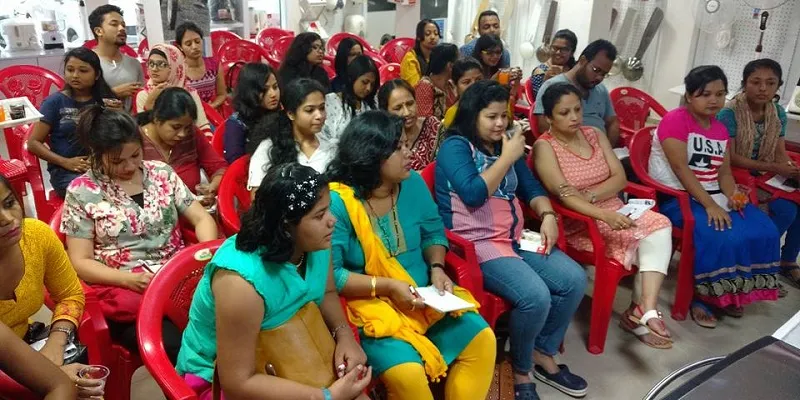How a Guwahati-based engineer is breaking taboos surrounding northeastern cuisine
“You northeastern people eat everything.” “Do you guys ever keep pets or just eat them when they grow up?” “Are there any animals there or did you people eat up everything?”
Initially, 28-year-old Sisir Kalita thought that it was only he who faced these racist, and often silly remarks about his food habits. However, growing up and living in different cities made him realise that the problem was much deeper.
Sisir was born in Guwahati, and has lived in many cities across India, which include Kota, Delhi, Chennai, and Bengaluru. During his engineering days in Chennai, Sisir started Guwahati Foodie, a Facebook Page intended to educate people about the food habits of Northeast India.

Breaking taboos
“A lot of us heard these inappropriate comments all the time. So we populated the platform with some content around the health benefits of the food we eat. This helped us respond to these people with humility and dignity. We would just tell people to visit the platform to know more about our food habits and culture.”
The intent was to spread the health benefits of these northeastern cuisines too. Sisir tells us about Lai Xaak, which is the local name for Mustard greens. It is a small herb that grows commonly in the northeast, and an important part of many tribal cuisines, both in the fried and boiled forms. Considered one of the world’s healthiest food, Lai Xaak is a very important source of vitamins and anti-oxidants for us in the northeast.
Similarly, silkworm is also a popular delicacy among various northeastern communities, and has very high protein content. Consumed for over 5,000 years, silkworm is often considered an environment friendly delicacy. However, almost everyone outside northeast considers it a taboo. “We want to break this taboo and popularise the eateries serving such cuisines. For example, there is a restaurant called ‘Pest-taurant’ in Majuli, Assam, where traditional, tribal delicacies related to insects are served,” Sisir says.

Growing popularity
Soon Guwahati Foodie started becoming popular. With students from across the country joining in, the Facebook page soon developed an active community in Chennai and Bengaluru. “Members started posting queries asking about where certain food items would be available. They started asking the English, Tamil, or Kannada names of these food items,” Sisir recalls.
Today, Guwahati Foodie is the largest and most active food-related platform for the northeastern community. Sisir lives in Guwahati and runs it alone. On the one hand, Guwahati Foodie shares authentic northeastern recipes online. While on the other hand, the platform has started bridging the gap between food joints and food lovers in the area.
Food joint owners promote their businesses on Guwahati Foodie’s platform. This helps these small businesses grow and prosper. Food lovers, on the other hand, post their queries and complaints on the platform. Food joints pay heed to these queries and complaints and become better. Sisir shares an anecdote –
“Once we received lots of complaints regarding the hygiene practices in the kitchen of a very popular eatery. Many food lovers had stopped going there. We compiled all the complaints together and gave it to the owner of the eatery. He was worried about the falling sales, but never knew the reason. After our discussion, he brought in some positive changes. This simple step got back a lot of his old customers, and helped him gain new ones too.”
Guwahati Foodie also reviews these eateries. “We make sure that the restaurant owners don’t know that we are reviewing them. This prevents any biased or favored reviews or comments,” Sisir says gleefully. A website remains at the heart of things. Guwahati Foodie has an active Facebook Community and an Android App too.

Future plans
Guwahati Foodie makes some income from advertisements by local food joints and small events like cooking workshops and cooking competitions with corporates like Havells, Philips, etc. The future plan, is to, however, evolve from a non-profit organisation to transform Guwahati Foodie into a firm that makes profit.
Sisir aims to build Guwahati Foodie into the go-to place for any food-related information for Northeast India. “An engaged community is already there. We only need to chanelise this strength,” says Sisir, who plans to bring information related to everything, from recipes to restaurants in a single platform, with preference to local cuisines. Sisir adds,
“The goal is to build an ecosystem where local food business can grow. I am working on this on a full basis time now. I was working under the Computer Science department of IIT Guwahati, but have left the job to pursue this dream.”







